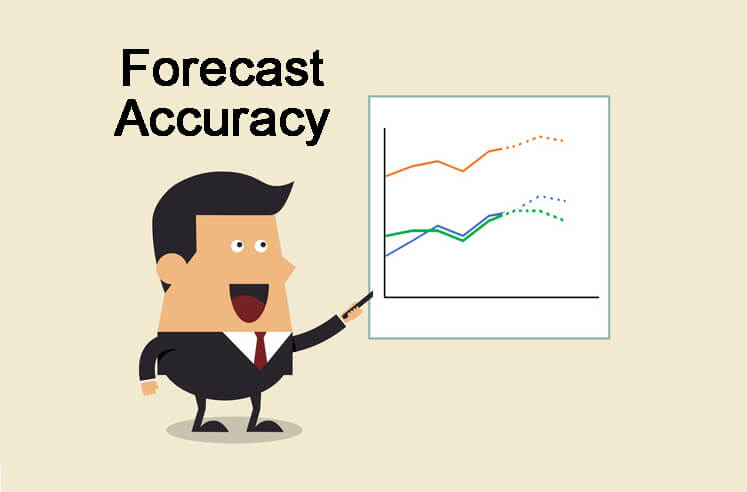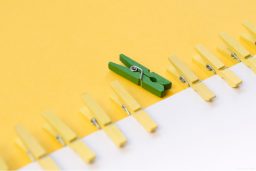
We recently came across following communication between C-Suite Sales Executive in response to our sales outreach. He wrote:
“We have a problem: we need to improve the accuracy of our sales forecasts. For 6 quarters, give or take, we have missed our sales goals. This has had an impact on the performance of the entire company and contributed significantly to the loss of motivation of our employees.
The sales targets are set too high and the results are much lower. We also tend to be too dependent on a few, very large deals. If one or two do not come through, the achievement of goals is endangered and the company’s EBITA comes under pressure. Solving this problem is our top priority.
So, the question is: Can you guys help? How?”
Sounds familiar? It probably does!
This company, like many others, suffers from age-old problem of sales forecasting accuracy. Amazingly even today, when most sales organizations are capturing more sales data than ever before, the inaccuracies with sales forecasts are still rampant.
We believe that the company referred above as well as many others can be helped by a few specific measures that can not only boost forecasting accuracy but also sales in general.
So, let’s understand the issue in some detail and explore some ideas that can improve your sales forecast accuracy.
Why is the Reliability of Forecasts So Important?
Investors expect reliable figures from the CEO. The service providers have to plan their resources and the CFO has to keep the cash flow under control. If the planning fundamentals are based on unreliable sales forecasts, this ultimately affects everyone. The accuracy of sales forecasts is therefore a key success factor.
In practice, the deviations are not negligible. Studies show that the average deviation from forecasts is 50%! This means that, on average, sale organizations per quarter close only about half of the “committed” deals, by value. And this number is steadily worsening.
What Can You Do?
From our experience there are 5 measures you , as a sales manager, can employ to improve your sales forecast accuracy:
1) Understand the customer’s procurement process
2) Consistently use the tools to assess your sales process
3) Focus coaching on the early stages of the sales process
4) Generate better quality leads
5) Use findings from “won” deals
Missing or Incorrect Information About the Procurement Process
The problem is that very few customers are willing to volunteer their decision-making and procurement process. Many employees/ contractors who represent a prospective customer in a sales process, often don’t even know it themselves. But a good understanding of your customers procurement process is a prerequisite for a reliable sales forecast.
We typically see a few common phases used within the decision-making and procurement process,. While this is by no means an exhaustive list, most procurement processes tend to follow these steps (at least conceptually) in roughly the same order.
1) No need for action
2) A need is identified
3) The goals and requirements are described
4) Possible solutions are evaluated
5) The preferred solution is selected
6) Procurement is initiated
7) The contract is signed
8) The implementation is complete
Its critical, that you take the time to understand exact flow of procurement process and assess where you are ( or your deal is) with respect to the process, in order to achieve right level of sales forecasts accuracy.
There are three ways to find out what your customer’s procurement process flow looks like and which stage your customer thinks they are, in the process:
1. The kind of questions your customers ask you during sales call.
2. How the customer responds to your questions AND
3. Lessons learned from previous projects.
For example, when the customer asks in a conversation, “How do you compare to your competitors? Are there any new developments that I should know? “, He is probably between phases 1 and 2. However, if the customer asks about your ability to implement a particular solution or cost, then he is probably in phase 4.
If you are already in contact with the customer, setting up a coach / executive sponsor is critical to the success. The executive sponsor helps you to sharpen your understanding of the procurement process and to understand influencing factors. The lack of an executive sponsor is a common cause of unreliable sales forecasts.
If you have already worked together successfully with the customer in the past, you should use those findings as well and may not need an executive sponsor but its always good to have one. More on this later.
Use Sales Process Measurement Tools Consistently
As a leader, you need to know the facts and help clear up problems. Tools which allow you to gather Key Performance Indicators (KPIs) about your sales process are key to achieving sales forecast accuracy. These tools help you objectively measure your sales process, track historical data and help you compare your current performance against the past. You can use the insights gained to develop a worst-case scenario. Whats the likelihood that some of the largest deals you have in the pipeline would get postponed or lost? What measures are required to make up for the lost / deferred revenue?
Coach in the Early Stages
It is very difficult to solve problems at the end of the sales process whose cause lies at the beginning. Many sales managers focus on the completion phase, even though they are better off spending their time in earlier phases.
When we recently worked with an international software vendor, we found a tight connection between postponed orders and lack of commitment towards setting up initial goals and requirements with the customers. It was clear that the requirements and quantification of the benefits of a possible solution, for the problem that the customer is facing, should be done, in consultation with the customer, in the beginning of the sales process. It should be set out in writing and formally approved in order to avoid late stage deal closure issues. As a measure, we recommended improving the skills needed to conduct Needs Analysis Workshops among Account Executives and implementing an early executive review of every deal beyond a certain size. Implementation of such workshop improved deal closure by 15% and enhanced sales forecasting accuracy by as high as 35%.
More Leads with Better Quality
From our experience, sellers often cling to straws, wasting time and resources on bad deals. They pursue a few seemingly attractive and promising deals, without regard for closure probability of such deals thus making sales forecasts unreliable.
The right thing to do would be to focus the resources of your sales teams and marketing on generating qualified leads. Work on leads that are likely to close. You can also rely on deal scoring and AI based sales forecasting tools if the clear definition of what constitutes a good deal is complicated to achieve or if there are too many moving parts. A sales funnel containing well-qualified sales leads, which are pursued in accordance with data-driven discipline, often is the key to much more accurate sales forecasts.
Use Findings From Won Deals
There are many benefits of interviewing prospects / customers after lost deal and order cancellation. However, what you rarely get here is information about the procurement process, because you simply did not get far enough with a customer with whom you lost the deal. An interview after “winning” a deal gives you the opportunity to talk to your customer about their procurement process and learn a lot. This knowledge is irreplaceable for the next sales deal with the same and similar customer.
Like most vendors you are probably selling to a relatively small group of customers (i.e. same industry , size, location etc), hence knowing “procurement process” of one customer helps a lot with other prospects who you would be reaching out in due course.
Conclusion
Creating sales forecasts is difficult. However, there are many possible measures to increase the accuracy of your sales forecast. If you address the identified causes effectively, your sales forecasts and consequently the credibility of sales organization in the company is likely to substantially improve.
Ask yourself the following questions:
1) Are you constantly concentrating on generating qualified leads?
2) Do you always know where the customer is in the procurement process?
3) Do you use interviews after winning orders to get to know the decision-making and procurement process better?
Keep iterating till you make enough changes to your sales process that you can confidently answer “Yes” to all of the questions above.
Cheers to more accurate sales forecasts !!




